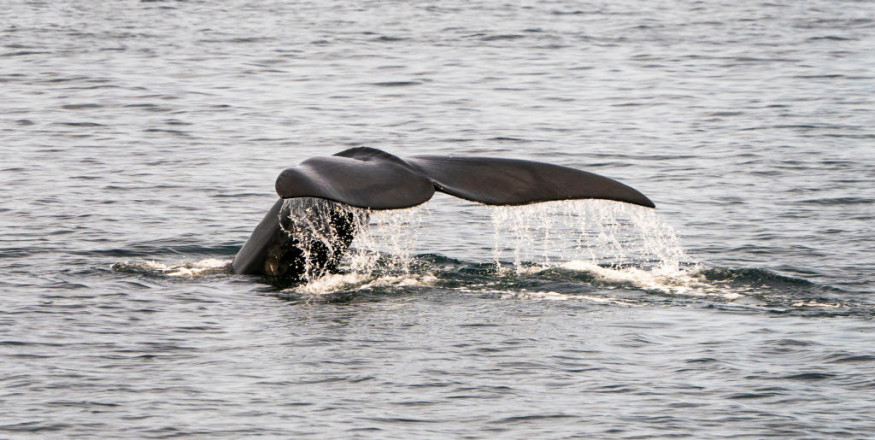
Conservationists are urging the federal government, along with the shipping and fishing industries, to take action to protect the North Atlantic right whale, a critically endangered species that has recently seen a slight population increase.
North Atlantic Right Whales' Population Sees Encouraging Increase
The North Atlantic right whale, which can weigh up to 150,000 pounds and lives along the East Coast, has faced significant challenges over the years. Its population fell to fewer than 360 individuals in the early 2020s, primarily due to threats from climate change, ship collisions and entanglement in fishing gear.
According to scientists from the North Atlantic Right Whale Consortium, the population has risen to an estimated 372 in 2023. This increase of about 4% from 2020 is seen as a positive development after a previous decline of approximately 25% from 2010 to 2020. Heather Pettis, a research scientist, noted that although the increase is encouraging, a lot of work remains to be done to support the species' recovery.
In light of recent whale deaths this year, which were linked to entanglement and vessel strikes, conservation groups are calling for stricter regulations to protect these whales. They highlight the urgency of new fishing and shipping restrictions, emphasizing the need to end the deaths of these magnificent creatures, said AP News.
Challenges Remain for North Atlantic Right Whales Despite Population Growth
Campaign director Gib Brogan pointed out that while the population increase is promising, the presence of dead whales on beaches serves as a sobering reminder of the ongoing threats they face.
Despite the recent population growth, implementing new regulations to protect the whales has been challenging. In February, environmental organizations filed a lawsuit against the National Oceanic and Atmospheric Administration (NOAA) to expedite the finalization of proposed ship speed regulations aimed at preventing collisions with whales. However, these proposals have faced pushback from fishing organizations, making progress difficult.
The North Atlantic right whale migrates from its calving grounds in Florida and Georgia to feeding areas in New England and Canada. Experts have observed that this journey has become more dangerous due to rising ocean temperatures, which affect the availability of their food sources.
© 2026 NatureWorldNews.com All rights reserved. Do not reproduce without permission.





